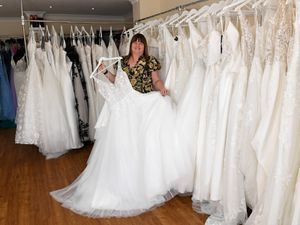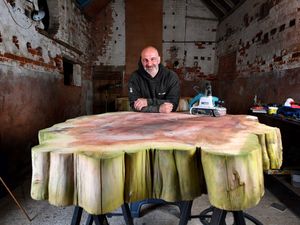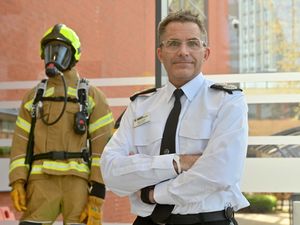How online trolls can ruin lives
Lucy Alexander knew something terrible had happened when her son's school contacted her saying he had not turned up for his classes.

Her son Felix, 17, had been subjected to abuse on social media from the age of about 13, and had clearly been troubled by it.
"People who had never even met Felix were abusing him over social media and he found that he was unable to make and keep friends as it was difficult to befriend the most 'hated' boy in the school," she says.
“He was called ‘black rat’ and ‘ugly’, people said he was worthless and everybody hated him. They didn’t understand or think through the consequences of what they said.”
When Mrs Alexander and her husband went out in search of their son, they noticed a policeman walking across a field near her home.
It quickly emerged that Felix, from Worcestershire, had taken his own life by walking under a train.
Mrs Alexander shared her story in a short video made for West Mercia Police highlighting the dangers of online trolling.
Watch the video here:
She is not alone. This week Jesy Nelson of the pop group Little Mix revealed she once tried to take her own life after years of relentless trolling.
The singer, 28, revealed that in November 2013 she took an overdose after being subjected to a barrage of online abuse.

Tony Sherrard, senior supervisor at Childline in the West Midlands, says today's digital world means that for many youngsters there is no escape from the bullies.
"Bullying can be relentless, 24 hours a day, following children into their homes, the very place they should feel safe," he says.
“This can have a serious impact on their wellbeing and mental health, affecting their self-worth, leaving them feeling isolated and potentially triggering depression."
Last year Childline held 19,681 counselling sessions for youngsters who were bullied, and Mr Sherrard says online bullying makes up a significant proportion of this.
“At its worst, bullying has driven children and young people to self-harm, and even take their own lives," he says.
Tell-tale signs
Mr Sherrard advises parents to keep an eye out for tell-tale signs, including nervousness, a lack of self-confidence, or becoming distressed and withdrawn.
“It could have a knock-on effect on their academic performance, or they may have problems with eating or sleeping,” he says.
To highlight the importance of responsible use of the internet, Telford College ran a short course for students last year.
Daniel Blasczyk, who ran the class, says young people often post comments online without giving any thought for the consequences of their actions.
"Students seem very surprised when we tell them that their comments online can land them with up to two years in jail," he says.
"People tend to say things behind the anonymity of a computer keyboard that they wouldn't say in person."
“Freedom of speech is a British value we are all proud of – but it is increasingly abused on the internet. Online forums, Facebook pages and news sites are full of insults, provocative comments and threats."
Contacting
Mr Blasczyk says that unguarded comments made on social media can also have repercussions for young people in later life. He highlights the case of England women's football coach Phil Neville, whose sexist comments made some years ago came back to haunt him.
He also points out that television prankster Dom Joly has taken to dealing with online trolls by tracking them down, and then contacting their employers regarding their behaviour.
"People think that they are anonymous when they go online, but the reality is it is quite easy to track down somebody's IP address and find out who is posting the messages."
Mr Sherrard is calling for the Government to bring in an independent regulator to enforce a legal duty of care on social networks. Former culture secretary and Staffordshire MP Karen Bradley announced a Green Paper proposing a voluntary code of conduct for social media operators, which includes a levy towards the cost of dealing with online harm. Consultation was held earlier this year on draft legislation.
Mr Sherrard says: “It is important that children and young people know they can talk to someone if anything happens.
"If anything they see online makes them upset or uncomfortable, then they can talk to their parents, another adult they trust or they can call Childline on 0800 1111.”
You can also visit childline.org.uk





